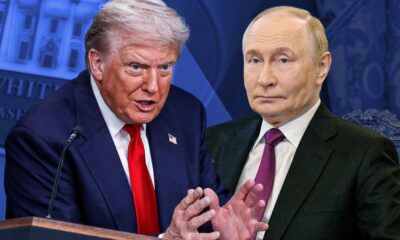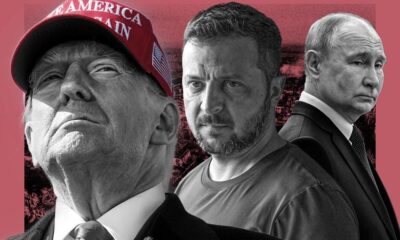Business
Europe Reacts to Trump-Putin Summit Amid Growing Concerns
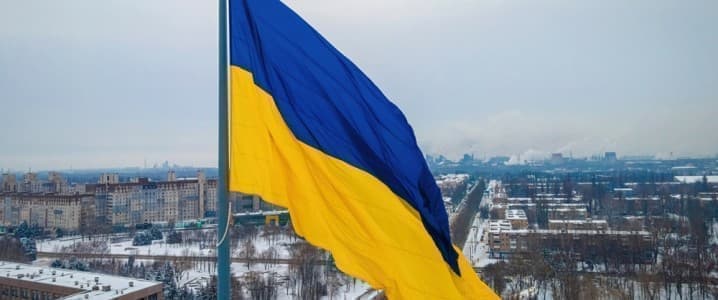
The upcoming summit in Alaska on August 15, 2023, between US President Donald Trump and Russian President Vladimir Putin has prompted urgent responses from European leaders. As Europe grapples with the implications of this high-level meeting, officials are striving to assert their influence, particularly regarding ongoing tensions surrounding Ukraine. The European Union (EU) is working to diplomatically support Ukraine while preparing additional sanctions against Russia, but faces challenges in securing a significant role in discussions that could shape the continent’s future.
European officials have expressed alarm over what they perceive as a potential “trap” for the United States, urging caution as they aim to reinforce Ukraine’s position. The announcement of the summit has catalyzed a flurry of diplomatic activity. Over the weekend, representatives from the EU engaged with US Vice President JD Vance in Britain, while foreign ministers conducted a videoconference on August 11. In a coordinated effort, leaders from multiple European nations, including Ukrainian President Volodymyr Zelenskyy, are set to connect with Trump just days before the summit.
Despite increased engagement, European officials describe the communication from Washington as “chaotic.” There are conflicting interpretations regarding the outcomes of recent discussions between Trump’s envoy, Steve Witkoff, and Putin. While European leaders express a degree of optimism following their outreach, uncertainty remains regarding the summit’s potential outcomes.
In their diplomatic efforts, EU officials have established several critical red lines. They insist on a cease-fire as a prerequisite for any negotiations concerning Ukrainian territorial concessions. Additionally, they seek security guarantees for Ukraine and a reliable mechanism for monitoring any cease-fire agreements. While the EU is prepared to support Ukraine in its decisions regarding territorial integrity, it remains steadfast in its refusal to recognize any Russian claims over Ukrainian land, including Crimea, which has been under Russian control since 2014.
There is skepticism about Russia’s commitment to withdrawing troops from occupied territories, given its historical reluctance to do so in other regions, such as Moldova’s Transnistria and Georgia’s Abkhazia and South Ossetia. Despite the EU’s insistence on being included in discussions, there are no indications that they will be afforded a seat at the table, contrasting sharply with their proactive engagement prior to the full-scale Russian invasion of Ukraine in early 2021.
The EU’s response includes the preparation of a nineteenth round of sanctions against Russia, although previous measures have had limited impact on Moscow’s political and military strategies. The EU holds over 200 billion euros in frozen Russian assets, which may serve as a bargaining tool for future negotiations. However, the urgency of these discussions is tempered by the requirement for unanimous agreement by EU member states for any extension of sanctions, set for renewal in January 2026.
French President Emmanuel Macron and British Prime Minister Keir Starmer have recently highlighted a proposal for a “reassurance force” comprising up to 20,000 European troops to be stationed in western Ukraine. While this initiative is under consideration, uncertainties remain regarding its practical implementation, particularly concerning rules of engagement and potential American support.
The prospect of NATO membership for Ukraine is frequently mentioned as a long-term security guarantee, yet consensus on this issue remains elusive among alliance members. Disagreements within the EU are also evident, as Hungary continues to block stronger measures against Russia and seeks to establish an EU-Russia summit to follow the Trump-Putin meeting. This stance underscores ongoing divisions within Europe, which may complicate unified responses to emerging geopolitical challenges.
As the Trump-Putin summit approaches, the European Union finds itself navigating a complex landscape, striving to maintain relevance while addressing the pressing security concerns affecting the continent. The outcomes of this high-stakes meeting could have significant implications for Europe’s future engagement with both the United States and Russia.
-

 Entertainment2 weeks ago
Entertainment2 weeks agoKim Cattrall Posts Cryptic Message After HBO’s Sequel Cancellation
-

 Entertainment4 weeks ago
Entertainment4 weeks agoSpeculation Surrounds Home and Away as Cast Departures Mount
-

 Entertainment7 days ago
Entertainment7 days agoLas Culturistas Awards Shine with Iconic Moments and Star Power
-

 Entertainment2 weeks ago
Entertainment2 weeks agoMarkiplier Addresses AI Controversy During Livestream Response
-
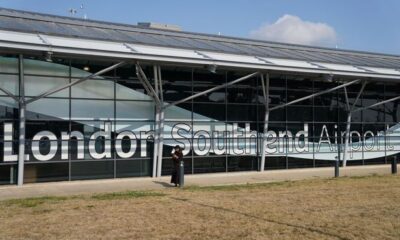
 Politics1 month ago
Politics1 month agoPlane Crash at Southend Airport Claims Four Lives After Takeoff
-

 Lifestyle2 weeks ago
Lifestyle2 weeks agoTesco Slashes Prices on Viral Dresses in Summer Clearance Sale
-

 Top Stories1 month ago
Top Stories1 month agoAustralian Man Arrested for Alleged Damage to Stone of Destiny
-

 Sports2 weeks ago
Sports2 weeks agoCommunity Pays Tribute as Footballer Aaron Moffett Dies at 38
-
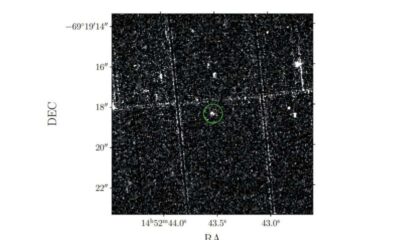
 Science2 weeks ago
Science2 weeks agoAstronomers Unveil New Long-Period Radio Transient ASKAP J1448−6856
-

 Sports1 month ago
Sports1 month agoSheffield United’s Young Talent Embraces Championship Opportunity
-

 Business1 month ago
Business1 month agoNew Study Links Economic Inequality to Lower Well-Being Globally
-

 Entertainment2 weeks ago
Entertainment2 weeks agoEmmerdale Characters Face Danger as Stabbing Shakes Village

